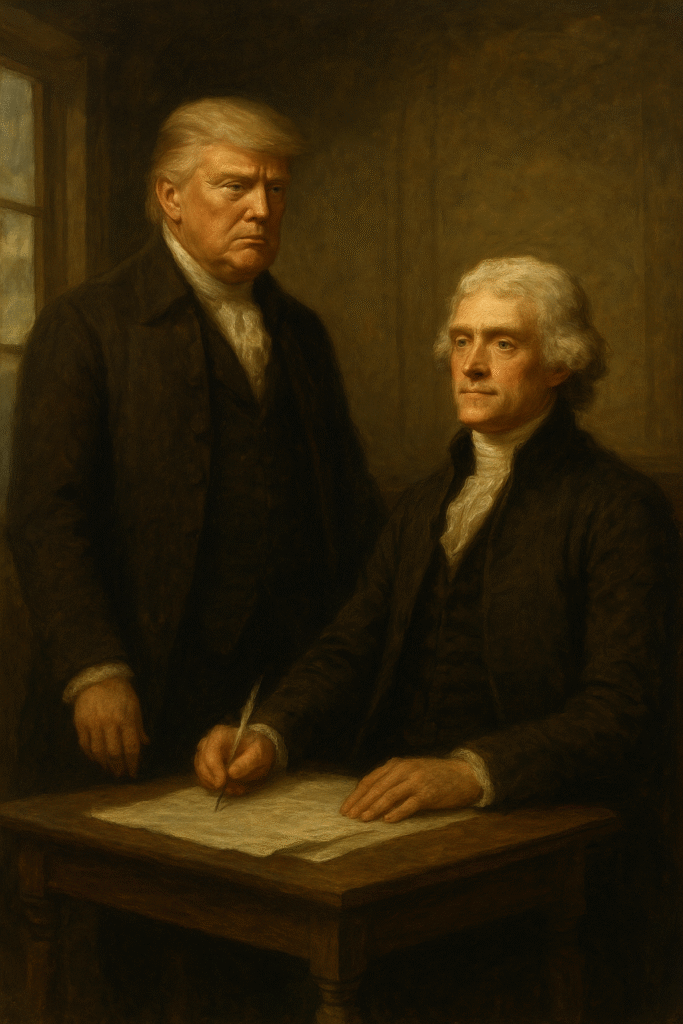
Jefferson’s prosecution of Aaron Burr in 1807 and today’s media scrutiny of President Trump’s alleged weaponization of the Department of Justice both expose how political leaders can marshal legal institutions to pursue rivals. Examining these two episodes side by side reveals enduring tensions between executive ambition, judicial independence, and public trust.
Jefferson’s Politically Charged Trial of Aaron Burr
Thomas Jefferson confronted his former vice president, Aaron Burr, after Burr’s mysterious western expedition sparked fears of a separatist plot. Although Jefferson publicly denounced Burr for “treason,” the administration’s deep involvement in gathering evidence and directing arrest warrants blurred the line between politics and justice.
The Supreme Court’s decision in Ex parte Bollman & Swartwout affirmed that federal courts could review executive detentions, limiting unilateral presidential power even as Jefferson pressured prosecutors and marshals to act swiftly.
At trial in Richmond, Chief Justice John Marshall insisted on a strict definition of treason requiring an overt act. Burr’s ultimate acquittal underscored that political zeal could falter when confronted with constitutional safeguards.
Media Coverage of Trump’s Alleged DOJ Weaponization
Since reentering office, President Trump has faced extensive media reports alleging he uses his executive authority to target perceived political enemies through investigations, indictments, and raids. Politico observed that the FBI’s search of John Bolton’s home marked “the most intrusive and aggressive law enforcement action taken by the Trump administration against the president’s critics.”
The Independent reported Trump’s own admissions that he sees the DOJ as an instrument of “revenge,” specifically mentioning plans to prosecute figures like James Comey for past investigations into him.
Analysts note parallels in rhetoric: just as Jefferson decried Burr as a personal threat to the republic, Trump frames investigations as part of a “witch hunt,” accusing opponents of weaponizing government power when roles are reversed.
Reflecting on the Past to Inform the Present
History does not repeat itself exactly, but patterns endure. Jefferson’s struggle to balance political survival with constitutional fidelity—and the courts’ role in asserting limits—offers a cautionary tale. As we watch contemporary debates over DOJ investigations and executive influence, the Burr trial reminds us that safeguarding liberty demands vigilance, transparency, and unwavering commitment to the rule of law.
